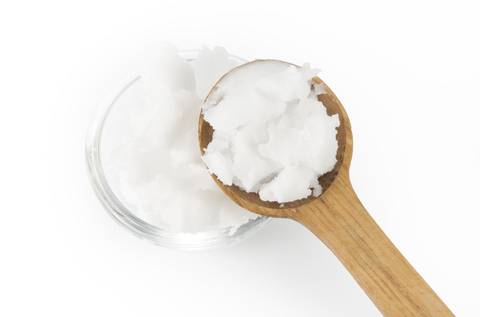Will coconut oil make you shed those extra pounds? What about the studies that “proved” coconut oil increased heart disease risk? It can be very confusing to sort through all the rubble of misinformation to get at the facts. This post was written to clear the air of confusion.
If you haven’t done so, read the first post on coconut oil. It will give you the basic background information on coconut oil, what it is and how it’s different in the way your body metabolizes (chemically uses) it compared to other types of fat.
Is coconut oil a heart healthy food?
Yes and no. That is the just the wonderful answer I know you wanted to hear. So let’s take a closer look to see why that is the best answer.
Coconut oil is a heart healthy food
Early studies that gave coconut oil such a bad reputation were done with the hydrogenated version of coconut oil. Later studies were done with virgin coconut oil and produced entirely different results. (Hopefully, none of our goddesses and gods is putting hydrogenated fats from any source into their bodies. That’s bad juju.)
Studies have shown that coconut oil is a heart healthy food. My research indicates there are four possible reasons for this:
- The high concentration of medium chain triglycerides in coconut oil and the way they are metabolized
- The low concentration of omega 6 fatty acids.
- The lauric acid in coconut oil is also a fat in human milk. In other words, human bodies are genetically engineered to more efficiently metabolize coconut oil.
- Coconut oil lowers the bad (LDL) cholesterol and increases the good cholesterol (HDL).
Coconut oil is not a heart healthy food
Coconut oil is high in saturated fats. If you consume too much fat of any kind including coconut oil, there can be a negative impact on your heart health. Keep in mind that although coconut oil is 68% medium chain fatty acids, it is roughly 30% long chain fatty acids and those are associated with heart disease. In some places online you will read that 3 tablespoons of coconut oil a day is recommended for its healthy benefits. Keep in mind that 3 tablespoons of coconut oil is 351 calories. To put things into perspective, 3 tablespoons of butter is about 306 calories and 3 tablespoons of canola oil weighs in 372 calories. Excessive calories create overweight people and being overweight is generally not healthy for you and your heart.
What to take away from all this?
It’s healthy to consume coconut oil by making it a regular part of your diet as long as you substitute it for other fats rather than adding it to the other fats you now consume.
Can coconut oil help you lose weight?
Absolutely! Numerous studies attest to that fact. It has to do with the way the fatty acids are metabolized. The medium chain fatty acids in coconut oil are transported in the blood to the liver for conversion into energy unlike other fats that tend to be stored as fat. However, there is a caveat. If you consume coconut oil in addition to the fats you are now eating and get no exercise, the chances of you losing weight are slim.
What are the other benefits to coconut oil?
In addition to weight loss and helping you have a healthy heart; limited studies have shown coconut oil to be beneficial in the following ways:
- Help repair liver damage
- Increase thyroid function
- Increase metabolism
- Act as a support to your immune system
- Coconut oil has antiviral and antibacterial properties
- Increased energy
- Benefit skin and hair (we’re going to cover this topic in the next coconut oil post)
How to use coconut oil
To get your daily dose of coconut oil, you can mix it with other foods you eat or drink. You can also substitute it for butter or use it in salad dressings. Substitute coconut oil in any recipe calling for cooking oil. Due to its stability at higher temperatures, cooking with coconut oil is a great option. Remember that virgin coconut oil has an aroma and flavor. If you don’t want the flavor, you can substitute refined coconut oil often referred to as “food grade.”
Is there any bad news?
Yes there is.
- Some people may be allergic to coconut oil.
- Due to the antiviral and antibacterial properties of coconut oil, toxins can form in your body as the bad bugs die. Some people have experienced diarrhea when this happens. To prevent this, one recommendation is to build up the use of coconut oil gradually. If you are going for 3 – 4 tablespoons a day, start with one tablespoon (with meals) and work up to the desired dose.
- Like any fat, it can cause weight gain if you consume too much.
Summary
Hopefully this post has been helpful in making a decision to use coconut oil as a very healthy food. Personally, I use it to fry foods. I like the flavor so I use virgin coconut oil. I also use it for baking. For salads, I use olive oil because coconut oil solidifies on cold veggies. I don’t like that effect at all.
Based on the research I have done, I would recommend our gods and goddesses add coconut oil to their daily diet. Replacing the other fats in their diet with coconut oil is a healthy choice.
One other thing I should mention is the argument for organic coconut oil. I personally buy organic coconut oil, but only because I believe in sustainable agriculture that adds no toxins to the environment. However, my investigation indicates that organic coconut oil is no better for you than non-organic.
Now go have fun and relax.
Related articles:

